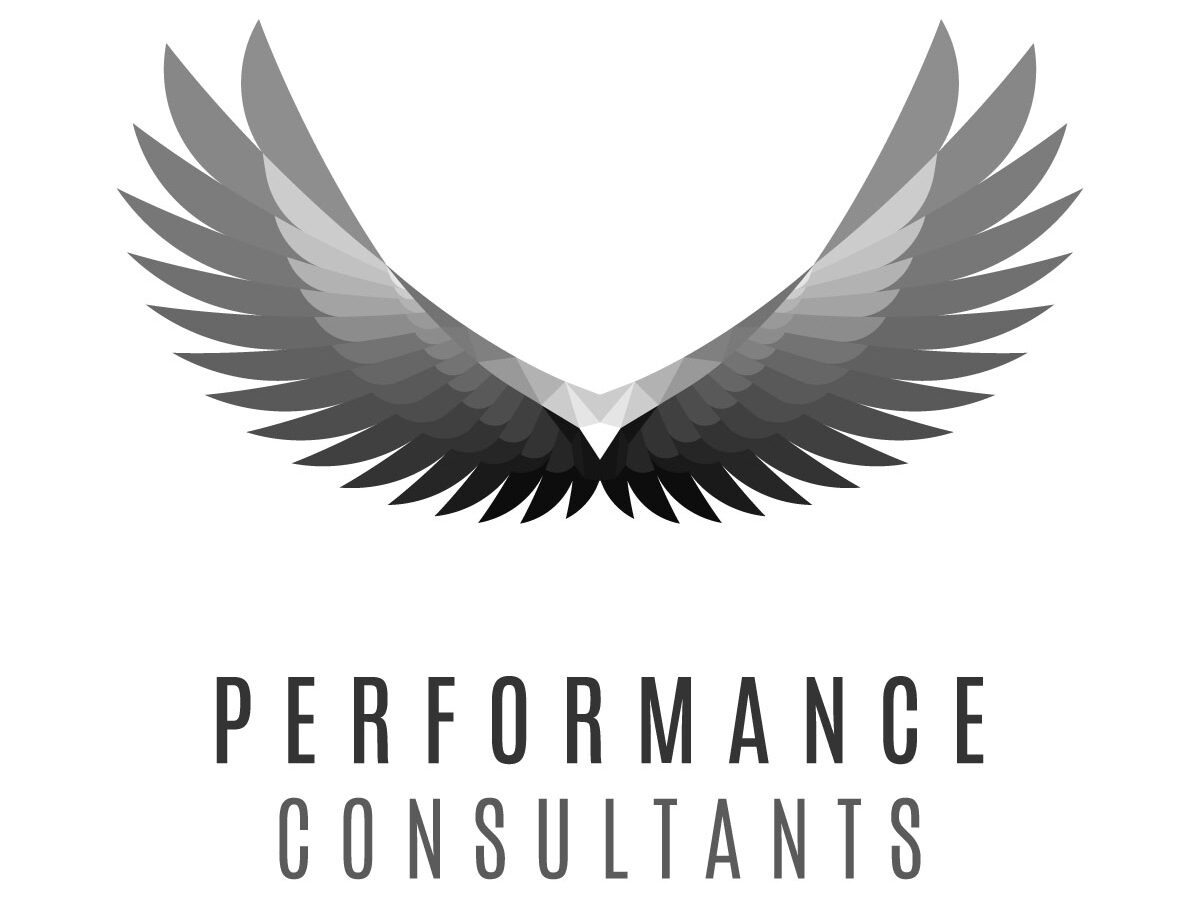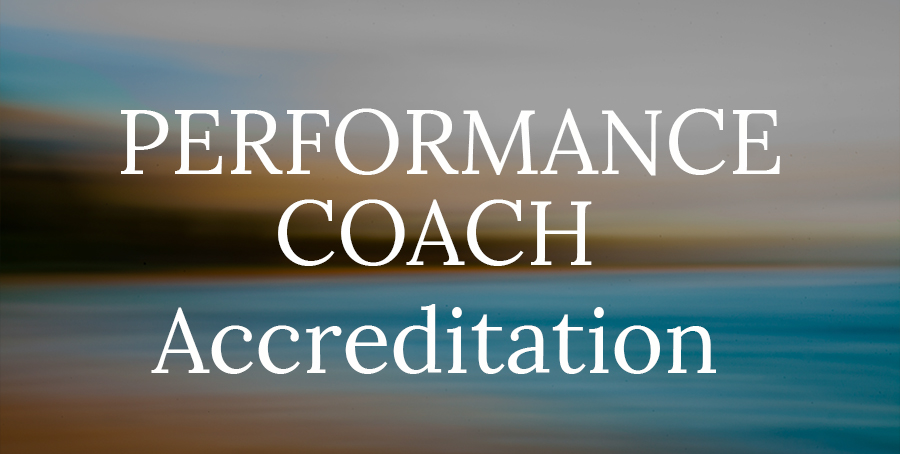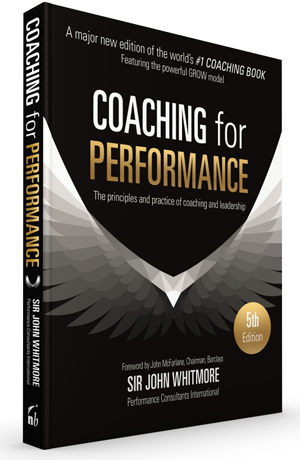
Understanding the connection between neuroscience and coaching sheds light on how the brain supports change and transformation.
– 5 mins read –
Extract taken from Coaching for Performance, Level 3 advanced coaching manual
Copyright © 2011 Performance Consultants (International) Ltd
The study of the brain has become of increasing interest and importance to the field of human evolution and development. As coaches it’s beneficial to understand how the brain works because we can develop our coaching to align with how the brain naturally functions. Most people come to coaches to create change and ultimately to transform the way they think, behave, perform, interact with others and approach their work and lives. In order to be effective we need to understand how the brain supports change and transformation.
COACHING TRAINING FOR LEADERS CREATED BY SIR JOHN WHITMORE
“Setting goals, making connections, becoming more aware, seeking breakthroughs and taking action – the ‘stuff’ of coaching – parallel what neuroscientists tell us about how the brain operates.”
Coaching with the Brain in Mind, David Rock and Linda J. Page
Neuroscientists have confirmed what we instinctively know: transformative, lasting change is harder than we think. Consider the major changes you and your coachees have attempted and how many have failed. 85% of change initiatives in organizations fail because leaders focus on the wrong things and don’t understand what it really takes for people to change their behaviour and beliefs. Information and motivation are not enough to inspire people to change. Transformation, whether on an individual or organizational level, requires on-going focused attention on new possibilities and new behaviours – not on the problem – and real commitment and effort over time.
Register for our free Coaching for Performance webinar
to find out more about a coaching leadership style
Why is change so hard?
When our brain detects changes in the environment it sends out strong signals that something’s not right. These signals come from the orbital cortex – which is closely connected to the brain’s fear circuitry in the amygdala. These signals distract us from our focus on making a change and instead reinforce our commitment to keeping things the way they are. One of the most important benefits coaching offers is the focus it provides for the coachee to concentrate on what they truly want and build the will to push past the brain’s anti-change signals.
According to Jeffrey Schwartz, a neuroscientist and author, the key to making real change in the brain and in our lives is ‘attention density’, defined as how much attention we pay to something. When we want to make a transformational shift, we need a high level of attention density focused on the new idea, behaviour or possibility we want to move towards. “Where you focus your attention, you make connections. Focus your attention on something new, and you make new connections.” (From the article ‘A Brain-based Approach to Coaching’ by David Rock and Jeffrey Schwartz.) With enough attention density our thoughts and new behaviours can become a part of who we are and impact how we perceive and interact with the world.
Coaches help people increase their attention density through powerful questions, exploring the coachee’s insights, creating opportunities to reflect, asking for commitments and holding coachees accountable.
How the brain works
The pre-frontal cortex holds the ‘executive function’ of the brain, which means, among other things, it determines good and bad, predicts future consequences or current actions and works towards goals. This is where change initiates. The pre-frontal cortex is used for learning new activities and houses our working memory. It has limited resources and fatigues easily and is able to hold a limited number of ideas at one time.
The basal ganglia is considered the brain’s automatic pilot because it handles voluntary movement control and routine behaviours and habits. It works without conscious thought during these routine activities. Because the working memory in the pre-frontal cortex fatigues easily we push as many activities to the basal ganglia as possible. Once these habits and routines have settled in this part of the brain it’s hard to change them.
Implications for coaching
Much of what people do at work is hardwired and is handled by the basal ganglia. We are unaware of the many habits we have in interacting with people, running meetings, communicating and all the other activities in our daily routines. True transformation requires forging new circuits in the brain, which uses the pre-frontal cortex. This process goes slowly and requires intense effort and attention because you are literally carving new pathways in the brain. Both you and your coachee have to have persistence and patience for the transformative process to work.
One of the biggest challenges coaches have when they first begin is to resist problem-solving and offering advice. Neuroscience shows that these two habits work against the coachee transforming. In fact, focusing on the problem actually emphasizes and expands the problem in the individual’s mind, where as putting attention on a future vision where the problem is solved or has dissipated helps create solutions. There is also evidence that when people arrive at their own insights their brain makes multiple connections that gives them a rush of energy that not only uplifts them, but gives them the motivation to take action on their insight.
Coaching helps the coachee give focused attention to their insights and to possibilities. Where your coachee puts their attention creates connections in their brain and this increases the mental resources. This provides more energy to resist homeostasis and supports their long-term transformation.
If you enjoyed this article, you may like to read next:
Connect with us:
How can you bring a coaching leadership style into your organization?
Sir John and his colleagues at Performance Consultants were the first to take coaching into the workplace and coined the term “performance coaching” in the early 1980s. We continue to lead the field in performance improvement through coaching leadership training.
Select one of the options shown. Or get in touch and one of our world-class leadership development consultants will work with you to create a tailored programme that meets your specific needs.
- Attend a Coaching Course – experience the benefits of coaching first hand. See our Global Training Calendar to find the right course for you
- Transformational Leader Pathway – learn how to be a leader–coach with a coaching leadership style that creates a culture of high performance for you, your team and entire organization
- Performance Coach Certification – become a coach or take your coaching skills to the next level so that you can practise transformational leadership coaching
- Individual Coaching (1:1) – take your leadership to the next level with a tailored, fast-track professional development coaching programme
- Team Development – unlock the next level of potential in your team with team coaching



